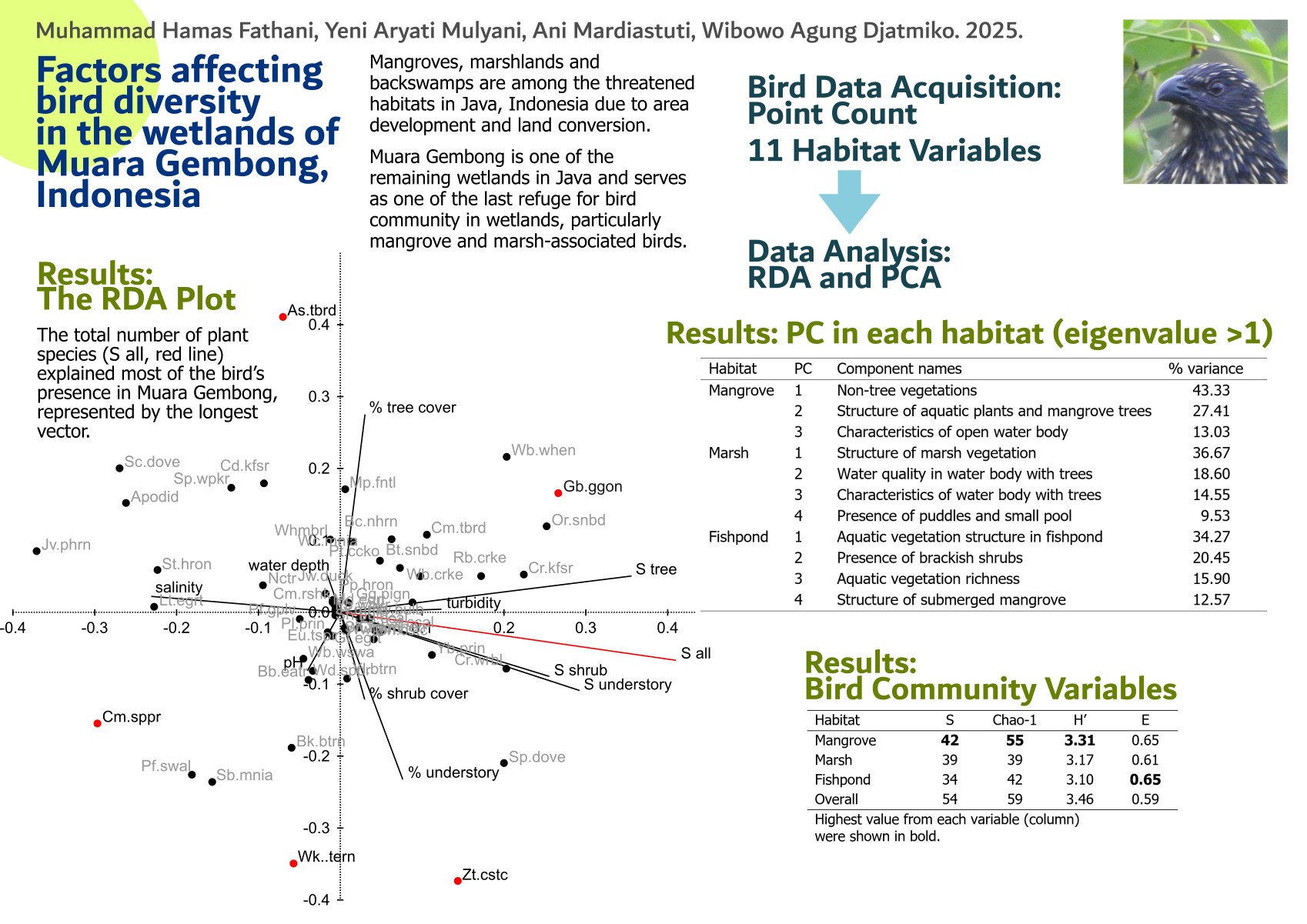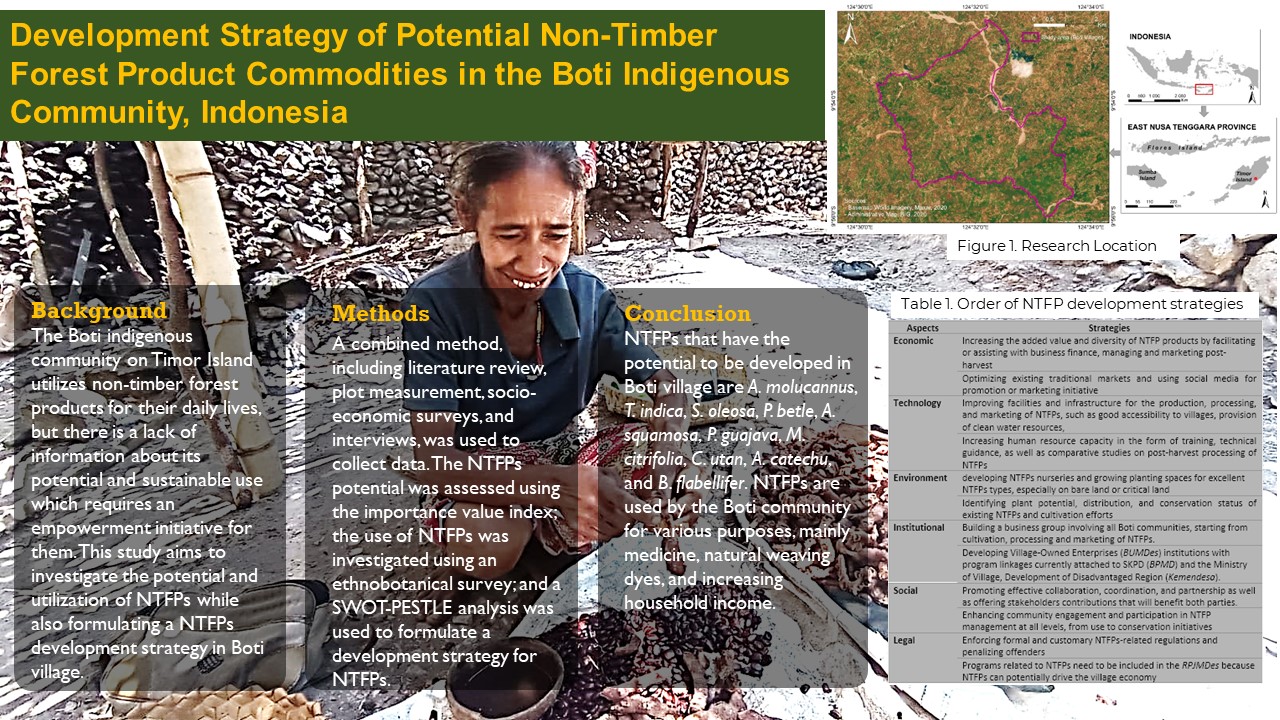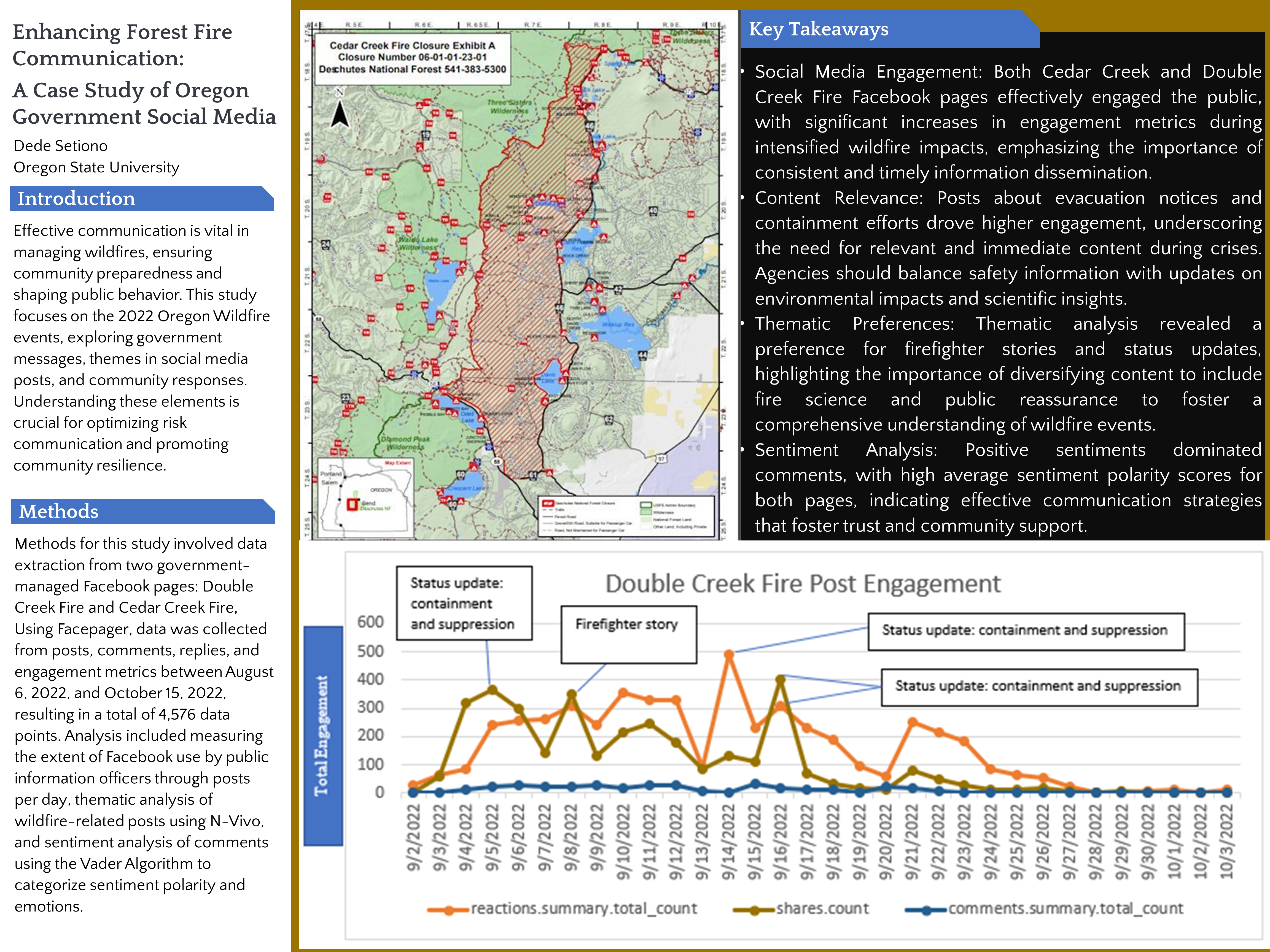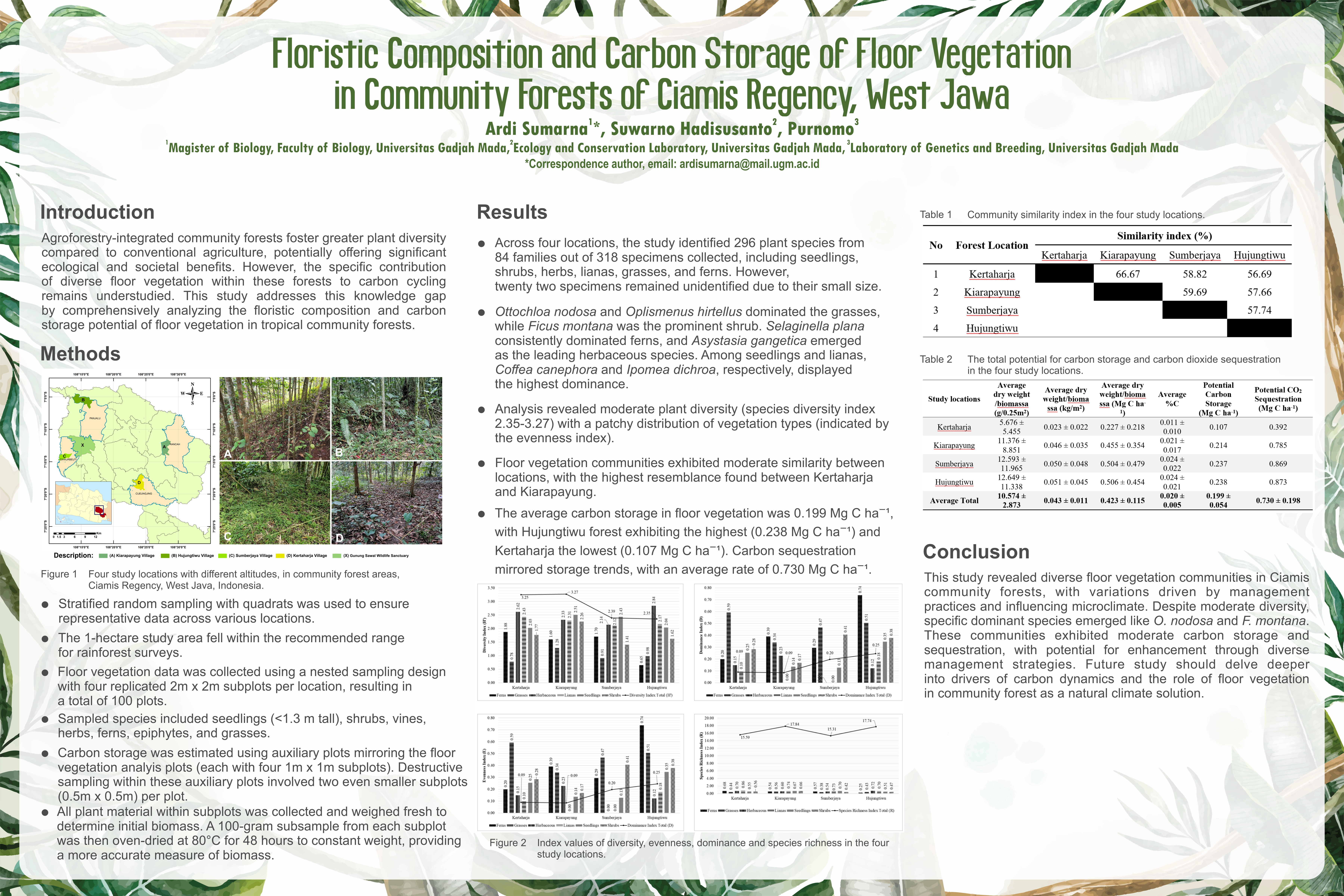Implementation Gap of Social Forestry Policy: The Case of HKm Beringin Jaya and HTR Hajran
Abstract
The current social forestry policy is considered to accelerate the issuance of social forestry licences, but after the licence is obtained, various difficulties and obstacles are still experienced by licence holder community to achieve the objective of social forestry policy. For this reason, this study questions who is actually stakeholder or party stipulated in social forestry regulation to carry out social forestry and facilitate community to overcome the difficulties and obstacles they experienced. This study aims to analyze the implementation gap of social forestry policy towards those stipulated in social forestry regulation compared with their implementation in the field. This research was conducted at HKm Beringin Jaya and HTR Hajran. The results show that three groups of actors are stipulated in social forestry regulation, namely community with their rights and obligations, central and regional governments with their authorities and related stakeholders to support the implementation of social forestry. In two research locations, implementation gap of social forestry policy toward three groups of actors occurred in the field. The rights that can be obtained and the obligations that must be fulfilled by licence holder communities are mostly facilitated by non-governmental organizations and are influenced by the networking capacity of the community. The authority of the central and local governments to facilitate the community is not functioning adequately at the field level due to the separate political system and authority between the central and regional governments. The involvement of other related stakeholders is considered low because of their interests that must be accommodated and requiring the capacity of the community to access stakeholders.
References
Agung, R., Rahayu, Y., Saputro, T., Tjandrakirana, R., Ramdhany, D., Wibawa, W., ..., & Muttaqin, M. Z. (2018). Status hutan dan kehutanan Indonesia 2018. Jakarta: Kementerian Lingkungan Hidup dan Kehutanan.
Ansell, C., Sørensen, E., & Torfing, J. (2017). Improving policy implementation through collaborative policymaking. Policy and Politics, 45(3), 467–486. https://doi.org/10.1332/030557317X14972799760260
Allcock, C., Dorman, F., Taunt, R., & Dixon, J. (2015). Constructive comfort: Accelerating change in the NHS. London: The Health Foundation. Retrieved from https://www.health.org.uk/sites/default/files/ConstructiveComfortAcceleratingChangeInTheNHS.pdf
Ardi. (2011). Pengembangan institusi pengelolaan hutan tanaman rakyat pola agroforestri (Studi kasus Lamban Sigatal, Kabupaten Sarolangun Jambi) [dissertation]. Bogor: IPB University.
Basrin, E. (2017). Pengembangan ekonomi berbasis masyarakat melalui ragam inovasi dan investasi UMKM kehutanan. In Kumpulan naskah akademik konferensi tenurial 2017 (pp. 137–160). Jakarta.
Baynes, J., Herbohn J., Smith, C., Fisher, R., & Bray, D. (2015). Key factors which influence the success of community forestry in developing countries. Global Enviromental Change, 35, 226-238. https://doi.org/10.1016/j.gloenvcha.2015.09.011
Birner, R. (2000). Analytical methods in the social science. Gottingen: Gottingen University.
Braithwaite, J., Churruca, K., Long, J. C., Ellis, L. A., & Herkes, J. (2018). When complexity science meets implementation science: A theoretical and empirical analysis of systems change. BMC Medicine, 16, 63. https://doi.org/10.1186/s12916-018-1057-z
de Royer, S., Juita, R., Galudra, G., & Pradhan, U. (2015). Are village forest licences for rural development or conservation? A case study from Jambi Province, Indonesia (ICRAF Brief No. 53). Bogor: World Agroforestry Centre. Retrieved from http://www.worldagroforestry.org/publication/are-village-forest-licences-rural-development-or-conservation-case-study-jambi-province
de Royer, S. & Juita, R. (2016). Village forest licences (Hutan Desa) in West Kalimantan: Way forward for equity and land security? (ICRAF Brief No. 58). Bogor: World Agroforestry Centre. Retrieved from http://www.worldagroforestry.org/publication/village-forest-licences-hutan-desa-west-kalimantan-way-forward-equity-and-land-security
Dunn, W. N. (2003). Pengantar analisis kebijakan public (edisi 2). Yogyakarta: Universitas Gadjah Mada.
Enters, T. (2004). Incentives: Key concepts, typology and rationale. In T. Enters, & P. B. Durst (Eds.), What does it take? The role of incentives in forest plantation development in Asia and the Pacific. Bangkok: Asian Pasific Forestry Commission.
Franks, R. P., & Bory, C. T. (2015). Who supports the successful implementation and sustainability of evidence-based practices? Defining and understanding the roles of intermediary and purveyor organisations. New Directions for Child and Adolescent Development, 149, 41–56. https://doi.org/10.1002/cad.20112
Gazley, B. (2017). The current state of interorganizational collaboration: Lessons for human service research and management. Human Service Organizations: Management, Leadership and Governance, 41(1), 1–5. https://doi.org/10.1080/23303131.2015.1095582
Hudson, B., Hunter, D., & Peckam, S. (2019). Policy failure and the policy-implementation gap: Can policy support programs help? Policy Design and Practice, 2(1), 1-14. https://doi.org.10.1080/25741292.2018.1540378
Kalaba, F. K. (2016). Barriers to policy implementation and implications for Zambia's forest ecosystem. Forest Policy and Economics, 69, 40-44. https://doi.org/10.1016/j.forpol.2016.04.004
Kartodihardjo, H., Nugroho, B., Rohadi, D., Suharjito, D., & Dermawan, A. (2011). Community plantation forests in Indonesia: Challenges and policy recommendations (CIFOR Brief No. 42.) Bogor: Centre for International Forestry Research. Retrieved from https://www.cifor.org/publications/pdf_files/infobrief/3666-infobrief.pdf
Kartodihardjo, H. (2017a). Dibalik krisis ekosistem: Pemikiran tentang kehutanan dan lingkungan hidup. Bogor: LP3ES and Yayasan Kehati.
Kartodihardjo, H. (2017b). Analisis kebijakan pengelolaan sumberdaya alam: Diskursus politik, aktor, jaringan. Bogor: Firdaus, Sajogjo Institute, Yayasan Auriga, RMI, P4W-IPB and PSA-IPB.
Kirsop-Talyor, N. A. (2018). Street level influences affecting implementation of an ecosystem approach within the North Devon UNESCO Biosphere Reserve [dissertation]. Devon: University of Exeter. Retrieved from https://ore.exeter.ac.uk/repository/bitstream/handle/10871/37385/Kirsop-TaylorN.pdf?sequence=1&isAllowed=y
[KORUT] Konsorsium Kota Agung Utara. (2017). Pengembangan sistem pengelolaan informasi pengelola hutan kemasyarakatan (HKm) di Kabupaten Tanggamus Lampung. Lampung: KORUT, TFCA Sumatera dan Universitas Lampung.
McIntyre, K. B. & Schultz, C. A. (2020). Facilitating collaboration in forest management: Assesing the benefits of collaborative policy innovations. Land Use Policy, 96. https://doi.org/10.1016/j.landusepol.2020.104683
McLaughlin, M. W. (1987). Learning from experience: Lessons from policy implementation. Educational Evaluation and Policy Analysis, 9(2), 171-178. https://doi.org/10.2307/1163728
[MoEF] Ministry of Environment and Forestry. (2017). Statistik lingkungan hidup dan kehutanan tahun 2017. Jakarta: Ministry of Environment and Forestry.
Norris, E., Kidson, M., Bouchal, P., & Rutter, J. (2014). Doing them justice: Lessons from four cases of policy implementation. London: Institute for Government. Retrieved from https://www.instituteforgovernment.org.uk/site/defaultfilespublicationsPolicy%20Implementation%20case%20studies%20report%20-%20final.pdf
[PEW] Pew Charitable Trust. (2017). Four ways implementation support centers assist in the delivery of evidence-based programmes. Philadephia: The Pew Charitable Trust. Retrieved from https://www. pewtrusts.org/-/media/assets/2017/08/results_4_ways_ implementation_support_centers_assist_in_the_delivery_of_evidence_based_programs.pdf
Roberts, N. C. & King, P. J. (1996). Transforming public policy: Dynamics of policy entrepreneurship and innovation. San Fransisco: Josey-Bass.
Santoso, T. (2019). Lima hutan, satu cerita. Jakarta: Yayasan Perkasa Hijau.
Sausman, C., Oborn, E., & Barrett, M. (2016). Policy translation through localisation: Implementing national policy in the United Kingdom. Policy and Politics, 44(4), 563–589. https://doi.org/10.1332/030557315X14298807527143
Spillane, J. P., Reiser, B. J., & Reimer, T. (2002). Policy implementation and cognition: Reframing and refocusing implementation research. Review of Educational Research, 72(3), 387–431. https://doi.org/10.3102/00346543072003387
Suharto, E. (2010). Analisis kebijakan publik: Panduan praktis mengkaji masalah dan kebijakan sosial. Bandung: Alfabeta.
Supriyanto, B., Karyana, A., Rosdiana, E., Tjiptono, B. H., Dwiyati, N., Prasetiani, C. E. P., ..., & Haryanto, G. (2018). Dampak perhutanan sosial: Perspektif ekonomi, sosial, dan lingkungan. Jakarta: Kementerian Lingkungan Hidup dan Kehutanan.
Supriyanto, B. (2019). Catatan dari tepi hutan. Jakarta: Tempo Publishing.
Syafitri, M. A. (2010). Forest tenure in Indonesia: The socio-legal challenges of securing communities'right [dissertation]. Leiden: Leiden University. Retrieved from https://openaccess.leidenuniv.nl/handle/1887/16242
Titscher, S., Mayer, M., Wodak, E., & Vetter, E. (2009). Metode analisis teks dan wacana. Yogyakarta: Pustaka Pelajar.
Wira, F. (2019). Peran kesatuan pengelolaan hutan (KPH) dalam implementasi perhutanan sosial (studi di KPH Produksi Kerinci, Provinsi Jambi dan KPH Lindung Sijunjung, Provinsi Sumatera Barat) [thesis]. Bogor: IPB University.
Williams, P. (2012). Collaboration in public policy and practice. Bristol: Bristol University Press. Retrieved from https://doi.org/10.2307/j.ctt1t89g31
Authors

This work is licensed under a Creative Commons Attribution 4.0 International License.
Jurnal Manajemen Hutan Tropika is an open access journal which means that all contents is freely available without charge to the user or his/her institution. Users are allowed to read, download, copy, distribute, print, search, or link to the full texts of the articles in this journal without asking prior permission from the publisher or the author. This is in accordance with the Budapest Open Access Initiative (BOAI) definition of open access.







